Not all fuses are created equal. When it comes to protecting control circuits inside industrial panels, Class CC fuses stand out for a few key reasons. 1. 🛡️High Interrupting Rating in a Small Package Class CC fuses typically carry a 200kA interrupting rating in a very compact footprint ,,, in 10x38mm and 1 ½ x…

Why AEI Chose Klemsan Wire Duct (And Why Our Customers Are Switching)
Wire Duct isn’t glamorous but it’s one of those components that quietly determines how clean, serviceable, and efficient an electrical panel really is. At American Electrical, Inc., (AEI) we’re picky about who we represent and what we stock. If it doesn’t save time, money, or headaches, it doesn’t make the cut. That’s exactly why we…
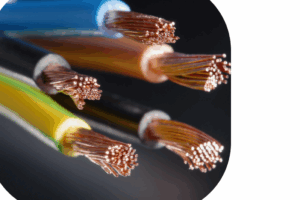
Why Wire Preparation Is Still the Weakest Link in the Control Panel
Control panels rarely fail because of the major components. More often, problems start at the connection point. Inconsistent stripping, damaged strands, and uneven crimps lead to loose terminations, troubleshooting headaches, and premature failures. Even the best terminal blocks and devices can’t compensate for poor wire preparation. That’s why standardized tools and kits matter. American Electrical’s…
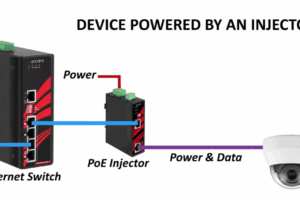
Power over Ethernet Injectors: A Simple Solution for Smarter Networks
Power over Ethernet (PoE) injectors make it easy to add power to Ethernet networks without replacing existing switches. By delivering power and data over a single cable, they simplify installations for devices like IP cameras, wireless access points, VoIP phones, and industrial sensors. They exploit the spare pair wires in a standard network cable, saving…

Loose Wire on Containership Dali Leads to Blackouts and Contact with Baltimore’s Francis Scott Key Bridge
If you recall the accident that happened on March 26, 2024, where a 900+ foot container ship, the Dali, collided with the Francis Scott Key Bridge in Baltimore, MD, killing six highway workers…After the NTSB investigated the ship, they found a situation that we feel you need to be made aware of! Since wire connections…
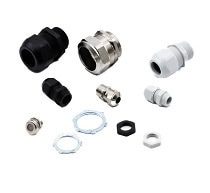
Agro Cable Grips: Robust Protection Meets Precision Engineering
American Electrical, Inc. (AEI) is proud to offer the complete Agro Cable Grip lineup. Agro Cable Grips are engineered to deliver exceptional strain relief and environmental integrity across the toughest industrial settings. Key Features & Benefits 1.✅ NPT, PG, Metric and Gas Thread Type Compatibility Agro provides cable grips in various thread standards :: NPT,…
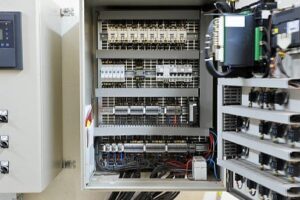
We asked a Senior Electrical Design Engineer what’s most important when it comes to specifying Electrical Components…
“As a Senior Electrical Engineer with years of experience specifying components for control systems, I can tell you that choosing the right electrical part is a critical task that directly affects system reliability, maintainability, and compliance. While there are many facets of design, here are the top five attributes we assess when specifying electrical components:”…
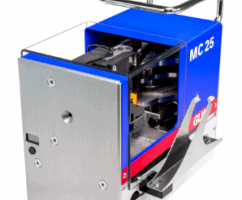
Still Crimping Wire Ferrules by Hand? Here are 5 reasons NOT to … and a Solution for you!
If you have low volume, we get it – however if you are using more than 10,000 wire ferrules a year you may want to read further !! Here are 5 really good reasons NOT to crimp by hand any longer! 1. Consistent Quality & Reliability 📈 Manual wire prep can lead to inconsistencies in…
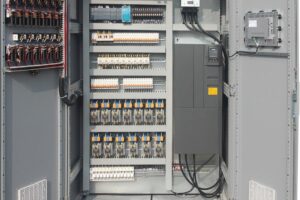
Discover the Complete Product Line from American Electrical, Inc. Your One-Stop Source for Industrial Electrical Components
✅Please INVITE ANY and ALL friends who you think may benefit from our posts! Thanks for following, sharing and engaging !!! At American Electrical, Inc., we believe in empowering engineers, panel builders, OEMs, and technicians with top-quality components designed for performance, durability, and ease of use. For over 25 years, we’ve provided innovative electrical connection…
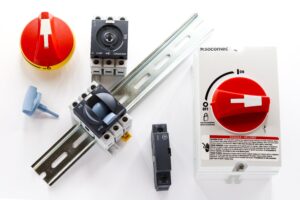
Cut the Power, Not the Corners: Disconnects IN A BOX
In the world of industrial control panels and electrical enclosures, safety is non-negotiable. That’s why engineers increasingly specify disconnect switches—not just as an afterthought, but as a critical design element from the very beginning. A disconnect switch provides a means to safely cut power during maintenance or emergencies. It helps meet OSHA, NEC, and UL…










